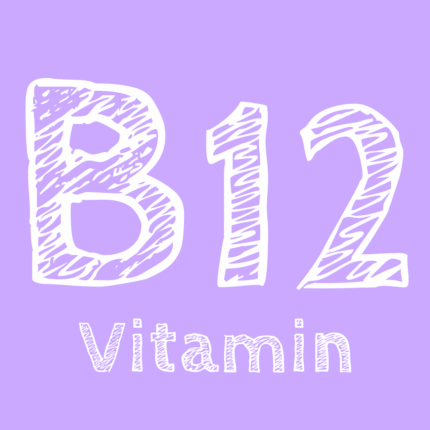Medically reviewed by Dr. Ramesh Gaddam, M.D. — Written by Sumalatha, D.N.H.E
Diagnosis
Diagnosing vitamin B12 deficiency in men typically involves a combination of clinical evaluation, medical history assessment, physical examination, and laboratory tests. Here’s an outline of the diagnostic process:
1. Physical Examination:
A healthcare provider may conduct a thorough physical examination to assess symptoms such as pale skin, glossitis, or neurological deficits.
2. Medical History:
Discussion of symptoms, dietary habits, medical history, and any risk factors for vitamin B12 deficiency.
3. Blood Tests:
Measurement of serum vitamin B12 levels to determine if they are below normal range.
Complete blood count (CBC) to check for anemia and other blood abnormalities.
Testing for serum methylmalonic acid (MMA) and homocysteine levels, which may be elevated in B12 deficiency.
4. Intrinsic Factor Antibody Test:
Testing for antibodies against intrinsic factor, which may indicate pernicious anemia, an autoimmune condition affecting B12 absorption.
5. Schilling Test (Rarely Used):
A radioactive or non-radioactive test to evaluate B12 absorption in the digestive tract, although it is less commonly used due to availability of other diagnostic methods.
6. Imaging Studies (If Neurological Symptoms):
Magnetic resonance imaging (MRI) or computed tomography (CT) scans of the brain or spinal cord may be performed if neurological symptoms are present, to assess for structural abnormalities.
7. Evaluation of Underlying Conditions:
Screening for gastrointestinal disorders such as celiac disease or Crohn’s disease, which can contribute to B12 deficiency.
8. Review of Medications:
Evaluation of medications that may interfere with B12 absorption, such as proton pump inhibitors (PPIs) or metformin.
9. Consideration of Dietary Intake:
Assessment of dietary habits and potential sources of vitamin B12, especially in individuals following vegetarian or vegan diets.
10. Follow-up and Monitoring:
Regular monitoring of B12 levels and clinical symptoms to assess response to treatment and identify any recurrence or ongoing deficiency.
Accurate diagnosis of vitamin B12 deficiency in men is essential for appropriate management and prevention of complications.
A comprehensive approach, including clinical evaluation, laboratory testing, and consideration of dietary and medical factors, helps ensure effective diagnosis and treatment planning.
Treatment
Treatment for vitamin B12 deficiency in men typically involves replenishing the body’s stores of the vitamin. Here are common approaches:
1. Vitamin B12 Supplementation:

Oral or intramuscular vitamin B12 supplements are the mainstay of treatment for deficiency.
Depending on the severity of deficiency and underlying causes, healthcare providers may prescribe high-dose oral supplements or intramuscular injections.
2. Oral B12 Supplements:

Men with mild to moderate deficiency may be prescribed oral vitamin B12 supplements, typically in the form of cyanocobalamin or methylcobalamin.
These supplements are usually taken daily or weekly, as directed by a healthcare provider.
3. Intramuscular B12 Injections:

Individuals with severe or symptomatic B12 deficiency, or those who cannot absorb oral supplements adequately, may require intramuscular injections of vitamin B12.
These injections are typically administered weekly or monthly until B12 levels stabilize.
4. Addressing Underlying Causes:
Treatment may also involve addressing underlying conditions contributing to B12 deficiency, such as pernicious anemia, gastrointestinal disorders, or medication-induced malabsorption.
Managing these underlying factors can help prevent recurrence of deficiency.
5. Dietary Modifications:
Encouraging dietary intake of vitamin B12-rich foods, such as meat, fish, eggs, and dairy products, can complement supplementation and support long-term maintenance of B12 levels.
Fortified foods and B12-containing dietary supplements may be recommended for individuals with dietary restrictions.
6. Lifestyle Changes:
Advising men to reduce or eliminate excessive alcohol consumption and avoid smoking, which can further impair B12 absorption and contribute to deficiency.
7. Regular Monitoring:
Ongoing monitoring of vitamin B12 levels and clinical symptoms is essential to assess treatment response and ensure optimal management.
Follow-up appointments with a healthcare provider may be scheduled to adjust treatment as needed.
8. Neurological Support:
Individuals with neurological symptoms or complications of B12 deficiency may require additional support, such as physical therapy, occupational therapy, or cognitive rehabilitation, to manage symptoms and improve quality of life.
9. Patient Education:
Providing education and counseling to men about the importance of B12 supplementation, dietary considerations, and strategies for preventing recurrence of deficiency.
10. Multidisciplinary Approach:
Collaboration with healthcare professionals from various specialties, such as gastroenterology, neurology, and dietetics, may be necessary for comprehensive management of vitamin B12 deficiency and associated complications.
Effective treatment of vitamin B12 deficiency in men involves addressing both the deficiency itself and any underlying factors contributing to its development.
A tailored approach, based on individual needs and medical history, helps optimize treatment outcomes and promote overall health and well-being.
Prevention
Preventing vitamin B12 deficiency in men involves ensuring an adequate intake of the vitamin through diet and supplementation, as well as addressing any underlying factors that may affect absorption or utilization. Here are some key strategies:
1. Balanced Diet:
Encourage men to consume a balanced diet rich in vitamin B12-containing foods, such as meat, fish, poultry, eggs, dairy products, and fortified foods.
2. Dietary Supplements:
Consider supplementation with vitamin B12 for individuals at risk of deficiency, including older adults, vegetarians, vegans, and those with gastrointestinal disorders or malabsorption issues.
3. Regular Health Check-ups:
Encourage men to schedule regular health check-ups with their healthcare provider to monitor vitamin B12 levels and assess overall health status.
4. Address Underlying Health Conditions:
Treat underlying medical conditions that can contribute to vitamin B12 deficiency, such as pernicious anemia, gastrointestinal disorders, or medication-induced malabsorption.
5. Medication Review:
Review medications that may interfere with vitamin B12 absorption and consider alternatives or adjustments as appropriate.
6. Limit Alcohol Consumption:
Advise men to limit alcohol intake to moderate levels, as excessive alcohol consumption can impair B12 absorption and increase the risk of deficiency.
7. Smoking Cessation:
Encourage men to quit smoking, as smoking has been associated with lower levels of vitamin B12.
8. Education and Awareness:
Provide education and raise awareness about the importance of vitamin B12 for overall health and the risk factors for deficiency.
9. Lifestyle Modifications:
Promote a healthy lifestyle, including regular physical activity and stress management, which can support overall well-being and may help prevent vitamin deficiencies.
10. Routine Screening:
Consider routine screening for vitamin B12 deficiency in high-risk populations, such as older adults, individuals with gastrointestinal disorders, or those with dietary restrictions.
11. Individualized Approach:
Tailor prevention strategies to individual needs and risk factors, taking into account factors such as age, dietary preferences, medical history, and lifestyle factors.
By implementing these preventive measures, men can reduce their risk of developing vitamin B12 deficiency and maintain optimal health and well-being. Regular monitoring and proactive management are essential for early detection and intervention when necessary.
Vitamin B12 Foods for Vegetarians
For vegetarians, obtaining vitamin B12 can be more challenging as it is primarily found in animal-based foods. However, there are still some vegetarian sources of vitamin B12, although they may not be as abundant or readily absorbed as animal sources. Here are some vegetarian sources of vitamin B12:
Fortified Foods:
Breakfast Cereals:
Many breakfast cereals are fortified with vitamin B12. Check the nutrition label to ensure it contains added B12.
Plant-Based Milk Alternatives:
Some brands of soy, almond, coconut, oat, and rice milk are fortified with vitamin B12.
Nutritional Yeast:
This deactivated yeast is a popular ingredient in vegan cooking and is often fortified with vitamin B12. It can be sprinkled on dishes like popcorn, pasta, or salads.
Meat Substitutes:
Certain vegetarian meat substitutes like veggie burgers, tofu, tempeh, and seitan may be fortified with vitamin B12.
Eggs and Dairy:
- Eggs: For lacto-vegetarians, eggs are a good source of vitamin B12.
- Dairy Products: Milk, cheese, yogurt, and other dairy products are sources of vitamin B12.
Seaweed and Algae:
- Nori: This seaweed, commonly used in sushi rolls, contains vitamin B12.
- Spirulina: This blue-green algae is considered one of the best plant-based sources of vitamin B12. However, the B12 content in spirulina can vary, and it may not be well-absorbed by the body.
- Chlorella: Another type of algae that contains some vitamin B12.
Supplements:
Vitamin B12 Supplements:
Vegetarians, particularly those who do not consume fortified foods or have limited intake of B12-containing foods, may benefit from taking vitamin B12 supplements. These supplements are available in various forms such as cyanocobalamin, methylcobalamin, or hydroxocobalamin.
Incorporating these vegetarian sources into the diet can help ensure an adequate intake of vitamin B12 for individuals who do not consume animal products.
Frequently Asked Questions (FAQs)
Users frequently searched for questions related to vitamin b12 deficiency.
What Happens if Vitamin B12 is Low?
When vitamin B12 levels are low, it can lead to various health issues, including:
- Fatigue and weakness
- Anemia (deficiency of red blood cells)
- Neurological symptoms such as numbness or tingling in the hands and feet, difficulty walking, memory problems, and mood changes
- Digestive problems
- Difficulty concentrating
- Shortness of breath
- Pale or jaundiced skin
- Glossitis (inflammation of the tongue)
- Balance problems or dizziness
What Are the Warning Signs of Vitamin B12 Deficiency?
Warning signs of vitamin B12 deficiency may include:
- Fatigue and weakness
- Anemia (low red blood cell count)
- Neurological symptoms such as numbness or tingling in the hands and feet, difficulty walking, memory problems, and mood changes
- Digestive issues like diarrhea or constipation
- Glossitis (inflammation of the tongue)
- Paleness or jaundice (yellowing of the skin)
- Balance problems or dizziness
How Can I Raise My B12 Levels Fast?
To raise B12 levels quickly, you can:
- Take B12 supplements as recommended by your healthcare provider
- Consume foods rich in vitamin B12, such as meat, fish, poultry, eggs, dairy products, and fortified foods
- Consider B12 injections if your deficiency is severe or if you have trouble absorbing B12 from food or supplements
What Is the Main Cause of Vitamin B12 Deficiency?
The main causes of vitamin B12 deficiency include:
- Inadequate dietary intake, especially in vegetarians and vegans who don’t consume animal products
- Poor absorption due to conditions like pernicious anemia, atrophic gastritis, or gastrointestinal surgery
- Certain medications that interfere with B12 absorption
- Conditions like celiac disease or Crohn’s disease that affect nutrient absorption in the intestines
What Food Is Highest in B12?
Foods highest in vitamin B12 include:
- Shellfish (clams, oysters, mussels)
- Liver (beef, chicken, pork)
- Fish (salmon, trout, tuna)
- Red meat (beef, lamb, pork)
- Poultry (chicken, turkey)
- Dairy products (milk, cheese, yogurt)
- Eggs
- Fortified foods (cereals, plant-based milk alternatives)
How to Increase B12 Naturally?
To increase B12 naturally, you can:
- Include foods rich in vitamin B12 in your diet, such as meat, fish, poultry, eggs, dairy products, and fortified foods
- Consume fermented foods like yogurt and kefir, which may contain small amounts of B12-producing bacteria
- Consider nutritional supplements if you’re unable to meet your B12 needs through diet alone
Which Fruit Gives B12?
Fruits do not naturally contain vitamin B12. However, some fortified fruit juices may contain added B12.
It’s essential to check the product label to determine if a particular fruit juice is fortified with vitamin B12.
Which Fruit Juice Is Rich in Vitamin B12?
Some fortified fruit juices may contain added vitamin B12. However, the availability of B12-fortified fruit juices may vary depending on the brand and manufacturer. It’s essential to check the product label to determine the B12 content of a specific fruit juice.
Can Too Much B12 Be Harmful?
Vitamin B12 is generally considered safe, even at high doses. However, excessive intake of B12 supplements may lead to certain side effects or complications in some individuals, such as:
- Skin rash
- Itching
- Headache
- Nausea or vomiting
- Anxiety
- Heart palpitations
- High blood pressure
Do Almonds Have B12?
Almonds are not a significant source of vitamin B12. While they contain some B vitamins, including B2 (riboflavin) and B3 (niacin), they do not provide substantial amounts of B12.
To increase B12 intake, it’s best to consume foods like meat, fish, poultry, eggs, dairy products, and fortified foods.
Can We Take Vitamin B12 Daily?
Yes, it is generally safe to take vitamin B12 supplements daily, especially for individuals at risk of deficiency, such as vegetarians, vegans, older adults, or those with certain medical conditions that affect B12 absorption.
However, it’s essential to follow the recommended dosage provided by your healthcare provider to avoid potential side effects.
Is Curd Rich in Vitamin B12?
Curd, also known as yogurt, is not a significant source of vitamin B12.
While it contains some B vitamins and other nutrients, curd alone does not provide substantial amounts of B12.
To ensure an adequate intake of B12, it’s best to include other sources of the vitamin in your diet, such as meat, fish, poultry, eggs, dairy products, and fortified foods.
Also Read:
Vitamin B12 Deficiency: Top best Foods to overcome it
13 Essential Vitamins: Benefits, Role, List, Dietary Sources
Medically reviewed by Dr. Ramesh Gaddam, M.D.

General Physician, Diabetologist, and Critical Care Specialist.
Discover more from Health Build-Up
Subscribe to get the latest posts sent to your email.








